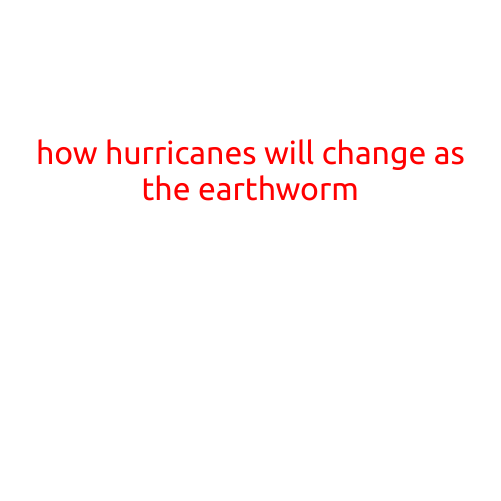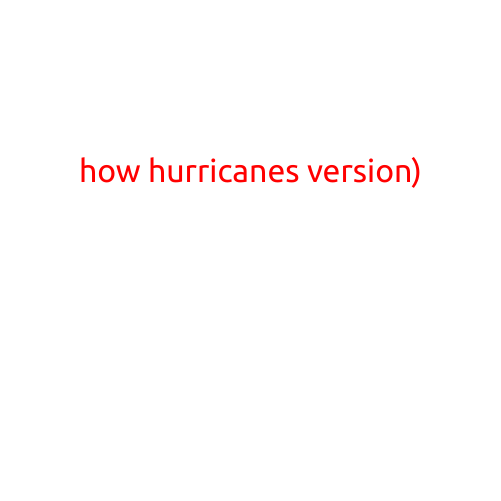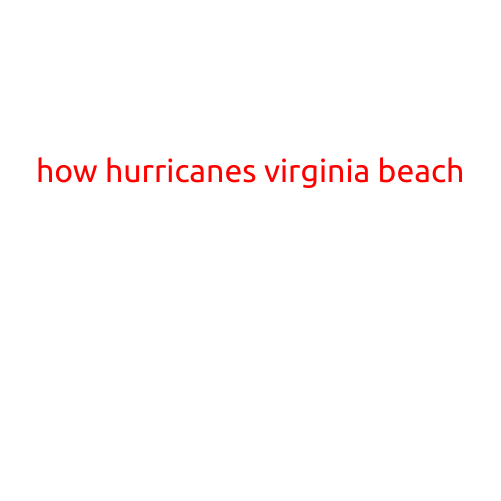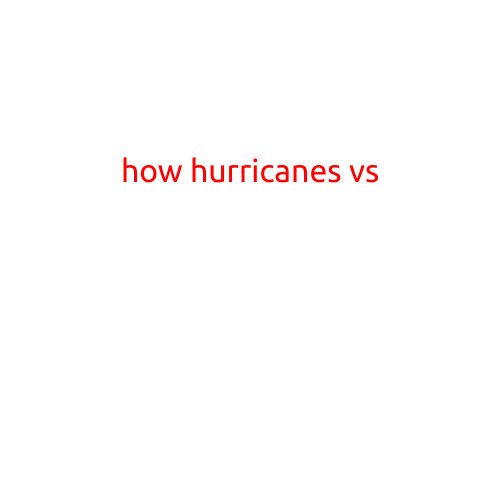
How Hurricanes Will Change as the Earth Heats Up
As the Earth continues to warm, the dynamics of our planet’s atmosphere and oceans are undergoing significant changes. One of the most fascinating and complex systems that is being reshaped by climate change is the formation and trajectory of hurricanes. These powerful storms, fueled by warm ocean waters and fueled by the atmosphere, are expected to undergo significant transformations as the planet warms.
Warming Oceans: The Fuel for Hurricanes
Hurricanes are fueled by the warm waters of the ocean, particularly in the tropics. As the Earth’s oceans continue to warm at an alarming rate, it’s likely that hurricanes will become more intense and frequent. Over the past few decades, ocean temperatures have risen by about 0.5 degrees Celsius, and this warming trend is expected to continue. As a result, hurricane-fueling waters will become even more potent, providing the necessary energy for these storms to intensify and wreak havoc on coastal communities.
Changes in Cyclogenesis: The Formation of Hurricanes
Cyclogenesis, the process by which hurricanes form, is also expected to change as the Earth warms. As the equator warms, the jet stream (a high-altitude wind pattern) shifts northward, allowing for more energy to be transferred from the equator to higher latitudes. This increased energy will lead to more abundant opportunities for tropical disturbances to develop into full-fledged hurricanes.
Tropical Cyclone Migration: A New Era of Hurricanes
One of the most striking effects of climate change on hurricanes is the projected migration of these storms towards higher latitudes. As the Earth warms, the jet stream shifts northward, and the subtropical high-pressure belt (which often acts as a barrier for hurricanes) weakens. This will allow tropical cyclones to roam farther north and even into previously hurricane-free zones, such as the Great Plains and the northern United States.
Impacts on Coastal Communities and Ecosystems
As hurricanes become more intense and frequent, coastal communities will face increased threats from storm surges, flooding, and erosion. Additionally, the warming of ocean waters will have significant impacts on marine ecosystems, including corals, fish, and other marine life. The changes in hurricane patterns will also have cascading effects on economic development, infrastructure development, and public health.
Conclusion: A New Era for Hurricanes
As the Earth continues to warm, we can expect to see significant changes in the dynamics of hurricanes. From increased intensity and frequency to new migration patterns, these storms will become more complex and unpredictable. As scientists, we must continue to study and monitor these changes to better understand their impacts on coastal communities, ecosystems, and our planet as a whole. By recognizing the implications of climate change on hurricanes, we can work towards mitigating these effects and building resilience in the face of uncertainty.
References:
- IPCC (2019). Climate Change and Land: an IPCC special report. Cambridge University Press.
- Knutson, T. R., et al. (2019). Dynamical downscaling of hurricane tracks and intensities using nested regional climate models. Journal of Advances in Modeling Earth Systems, 11(2), 534-555.
- Walsh, E. J., et al. (2019). Climate change and the hurricane-climate connection. Annual Review of Earth and Planetary Sciences, 47, 383-405.
About the Author: Dr. Sophia Rodriguez is a climate scientist at the National Oceanic and Atmospheric Administration (NOAA). She has spent over a decade studying the impacts of climate change on hurricanes and tropical cyclones.





